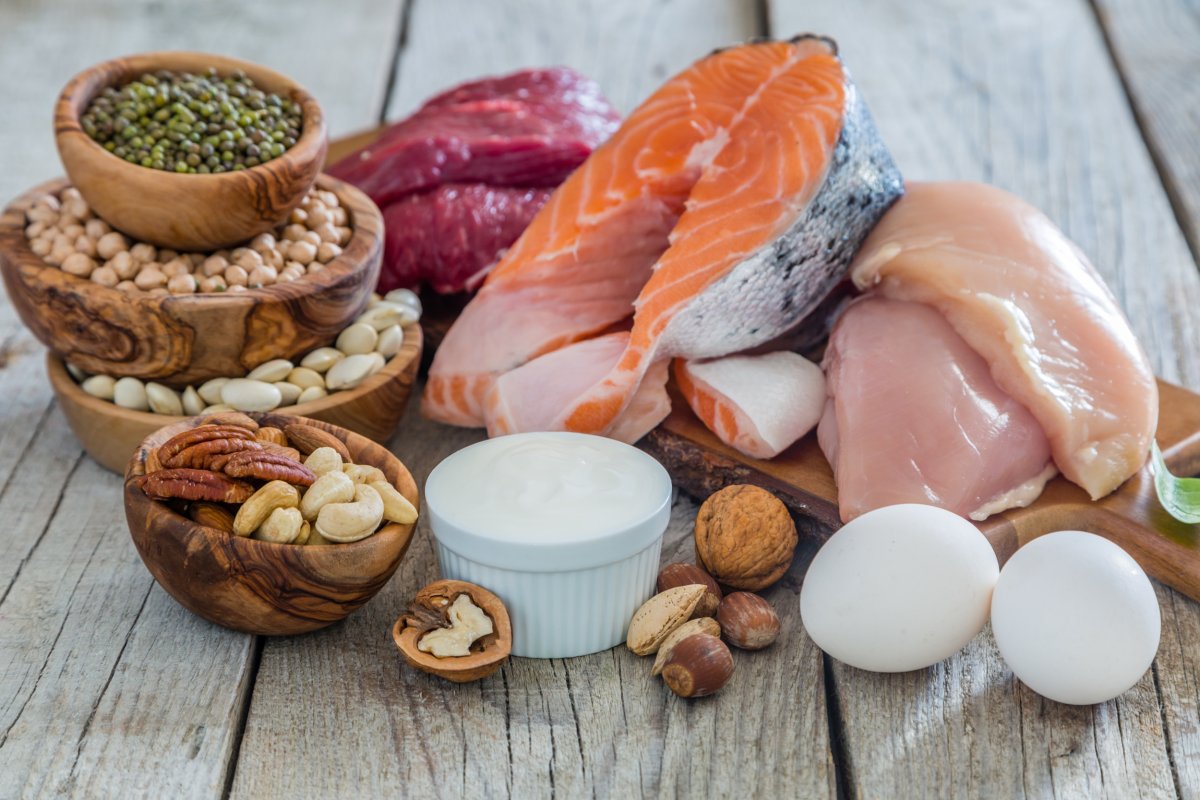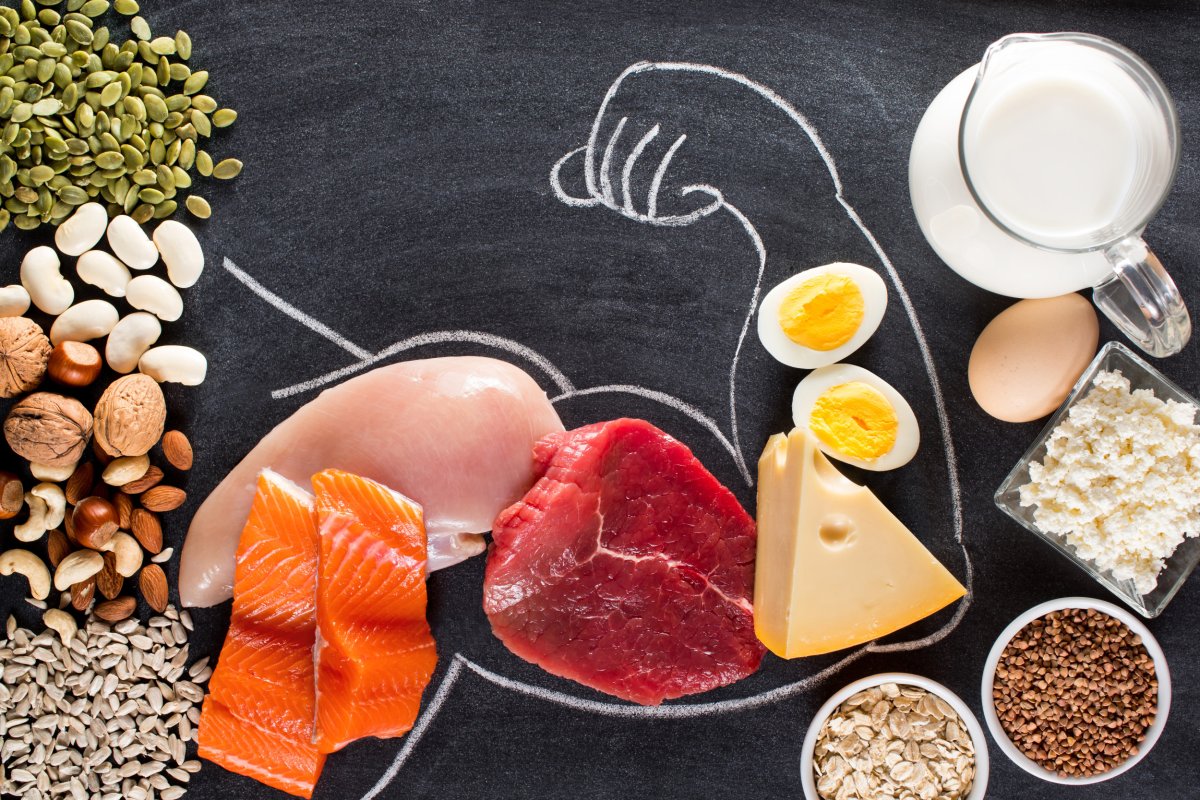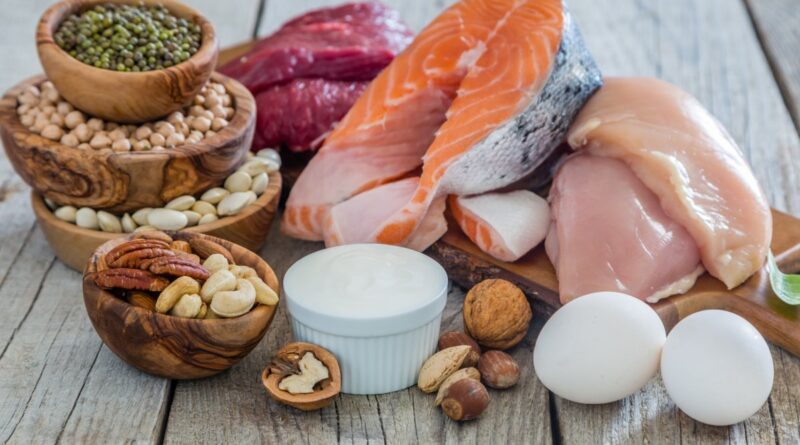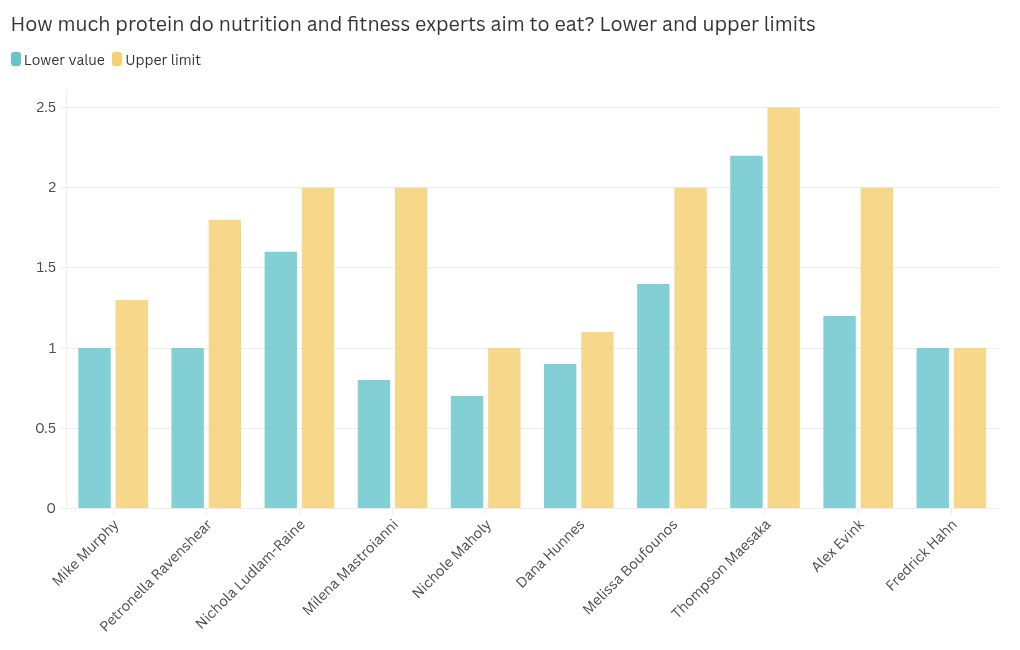Protein: how much? expert opinions
Some people just don’t seem to get enough protein. In shakes, bars, smoothies—or like big cuts of steak—it’s my favorite macronutrient, especially in the realm of nutrition and exercise.
But experts disagree on the right amount of protein to eat, on whether we should focus on protein in order to maximize nutrition, and on whether we should instead we may be at risk of eating too much protein.
Newsweek reached out to 10 different nutritionists—all with different opinions—to ask them how much protein they, themselves, eat every day.
Many of them have cited the recommended daily amount (RDA): in the US National nutrition guidelines recommend eating at least 0.8 grams of protein per kilogram (g/kg) of body weight.
For someone who weighs 180lbs, or 82kg, that means eating 65g or 2.3oz of protein a day: slightly more than a 10oz steak.
For nutritionist Mike Murphy—who said people should aim to eat about 1g/kg per day—eating enough protein is “one of the most important goals of a person’s diet.” I can focus on them.”
He said: “Protein balances blood sugar, promotes satiety, and it is very difficult to eat protein. In addition, we need protein to repair cells and build things in the body, such as enzymes, hormones and muscles.
“I see the muscles as the most important long-term organ and we cannot maintain them without getting enough protein in the diet.”

a_namenko/Getty Images
He said he gets about 100g of protein a day, which could look like: two eggs, a slice of sourdough toast and peanut butter for breakfast; chicken breast, a cup of broccoli and a cup of quinoa for lunch; a handful of almonds for toasting; and salmon and half a cup of lentils for dinner.
Murphy said that protein was “very difficult to overeat” and did not warn against using it – but others made it clear that there was no need to worry about overeating .
“There really isn’t too much protein,” said Fredrick Hahn, a trainer with studios in New York and New Jersey. “Eating protein, which has a lot of nutrients, increases satiety and you can’t keep eating it. Think about it: how many eggs can you eat at one time?”
Melissa Boufounous, a sports nutritionist from Canada, echoed this, saying there is “a lot of fear and misconception” about high-protein diets.
“Many studies have shown that it is safe for healthy people to consume more protein than the RDA,” he said, adding that the RDA was “the minimum amount of protein needed to prevent malnutrition.” .” He said serious bodybuilders, who need a lot of protein for muscle building and tissue repair, can safely consume about 4.4g/kg of protein: five times the RDA.
“I personally don’t see the need to eat more than 2g/kg of protein per day, but I wouldn’t worry about my health if I ate more than this amount regularly,” said Boufounous.
Some experts were more reserved than this. Nutritionist Milena Mastroianni, for example, agreed with Murphy by saying, “it’s very difficult to eat protein, especially from animal foods,” but added that some athletes can be safe from feed up to 3.5g/kg.
And he warned that focusing too much on protein sources could crowd out other healthy foods, such as high-fibre vegetables, healthy fats and complex carbohydrates.
Dietitian, nutritionist and health coach Nichole Maholy chimed in, saying that she herself would not eat more than 2.5g/kg of protein—”because it’s not necessary”—but he won’t worry about eating more than that.
“There are no randomized controlled trials that show that too much protein is harmful to our health, but there is some evidence that eating more than the recommended amount can have side effects such as indigestion, dehydration or electrolyte imbalance, and putting stress on the kidneys,” said Maholy.

piotr_malczyk/Getty Images
But most nutritionists Newsweek which spoke to them and said they would be concerned about eating too much protein, for various reasons.
Nutritionist Petronella Ravenshear said that excess protein is stored in the body as fat and that most people do not need more than 1g/kg of protein per day.
“The conventional wisdom is that a high protein diet helps us lose weight by boosting our metabolic rate, and muscle protein synthesis, but the science doesn’t support this,” he said.
Dietitian Nichola Ludlam-Raine said that, while there was no “clear cut” on protein, there was only so much protein the body could use.
“Consuming too much protein over a long period of time can put unnecessary stress on the kidneys, especially with pre-existing kidney conditions, although healthy people are less likely to,” he said. they have problems,” he said.
His dose was 2.2g/kg of protein per day. Beyond this, “the benefits tend to plateau,” he said, “and it’s important to focus on eating a nutritious diet.”
Nutritionist Dana Hunnes, a professor at the University of California, Los Angeles, seemed adamantly against too much protein.
He said: “We need a lot less protein than the media influencers would believe.” “We don’t really need more than 1g/kg of protein per day. More than that can put extra work on the kidneys.
“You want to eat the right amount of protein, not too much and not too little. But, in the US, it’s very difficult to eat too little protein, especially because there’s such an emphasis on it.”
He said he stuck to plant-based protein, because it was easy on the kidneys, and full of fiber, antioxidants, vitamins and minerals, as well as being “environmentally conscious.”
But other nutritionists, like Ravenshear and Maholy, have said Newsweek that they preferred to get their protein from animal foods, because they contained the amino acids—the building blocks of protein—that the body needed, and made it easier to achieve their goals of protein.
On the other side of the same coin was Thompson Maesaka: the owner of a neurological rehab clinic who used to train professional sports teams, and was a physical therapist who inactive, which consumed 190g of protein per day. Even he had his limits.
“Yes, there can be too much protein,” said Maesaka. “I think it’s hard to tell exactly how much it is from person to person, and the easiest way to tell is by using the gut problem and general energy as a guide.
“If I don’t balance my protein sources, I’ll lose a lot of weight and have a lot of gastrointestinal issues, which is my red flag for macronutrient balance.”
Do you have advice on the story of food that Newsweek should cover? Do you have a nutritional problem? Let us know at science@newsweek.com. We can ask experts for advice, and your story can be featured Newsweek.
#Protein #expert #opinions

